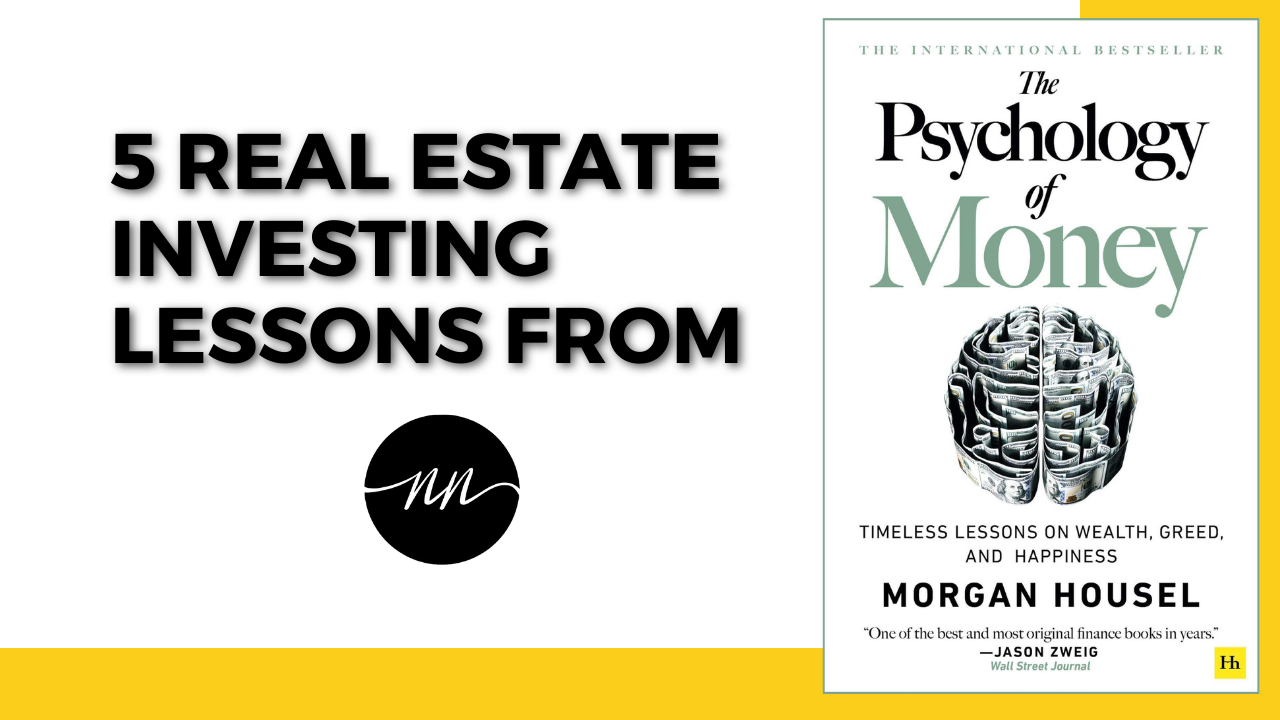I have been reading the book “The Psychology of Money” written by Morgan Housel which I highly recommend. I couldn’t help but correlate it to real estate investing. It gives a great perspective on our human psychology when thinking about money.
Here are my first 5 takeaways from the book:
1. Never Enough: Let’s be honest, we live in a capitalist society where more is better. However, continuously moving the goalpost can be dangerous. For real estate investing understanding having one or two paid-off income properties in Toronto will make a big difference to your financial freedom. There is no need to get distracted by wanting more properties in other cities, other provinces or locations. More is not better if you understand where you want to be.
2. Power of Compounding: Warren Buffet’s $81.5 billion out of $84.5 billion net worth came after he was 65 years old. He started investing in his thirties. Patience and staying the course pays off. For real estate investing, it’s holding on to your duplex or triplex for 15,20,25 years. Every year it appreciates a little, the mortgage is paid down a little and over time the equity mountain builds. For example, if you buy an investment property for $1 million dollars, at 5% annual appreciation, it would be valued at $1.276 million. That’s 27% appreciation by simply holding on for 5 years. Imagine what it would be worth over 15-20 years.
3. Getting Wealthy vs Staying Wealthy: Good investing is about consistently not making mistakes. For real estate investing it’s planning for repairs, planning to deal with tenants (hint: have a solid group of professionals you can consult with), and planning for a rental down market as we had during the pandemic. During the pandemic, I’ve advised every single client to hold on to their properties and not to sell. Rents were down and having a big picture perspective is important. For example, having the investment property rent for $500 per month less costs $6000 per year. It’s more manageable to deal with a $6,000 hit versus having sold for hundreds of thousands of loss. Plan for the bad time.
4. Wealth is What You Don’t See: I have to say when I read this I laughed out loud. I thought of real estate agents: Fancy cars, beautiful social media posts, looking good for Instagram. For real estate investing, you don’t need to keep up with the Jones and own 20 investment properties, one or two will do. Stay the course, focus on your lane and all will be well in the long term.
5. Save Money: You can make $200,000 per year and spend $150,000 or you can make $100,000 and save $30,000. To a certain extent, how much you make is irrelevant. It matters how much you keep or save. You can save for when the real estate market is down. Having the savings will help in keeping the investment property and not being forced to make a bad decision in a down market. You the flexibility to take a portion of the savings to paydown the mortgages. Lots of options, key here saving money puts you in a power position.
These are my first 5 takeaways from the book. Stay tuned for the next five takeaways and how it correlates to real estate investing.
Till next time….happy investing!!

